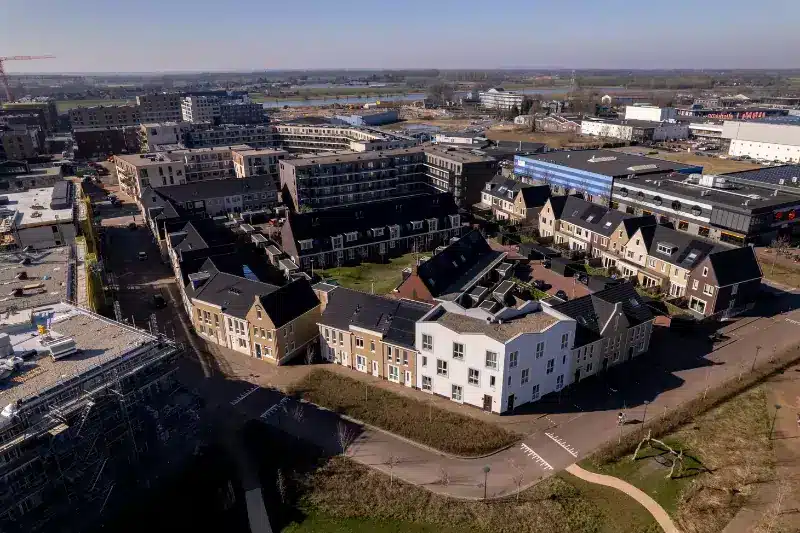Are you having trouble finding a place to live? You’re not alone. Many people across the US are. Let’s get into the reasons behind the current shortage and how it’s affecting us.
Why is There a Shortage
Imagine this: you’re looking for a new home, and everywhere you turn prices are through the roof and there’s not much to choose from. This is happening because there just aren’t enough homes. It’s like musical chairs but with houses instead of chairs.
The shortage means there aren’t enough homes to live in compared to how many people need homes. This has been going on for years and it’s happening in cities and towns all over the country.
The shortage isn’t just about the number of houses though. It’s also about the type of houses. Many areas lack affordable housing units that people with lower or middle incomes can afford without spending too much of their paycheck on housing costs.
This affordable housing crisis is making it hard for many families to find a place to live that fits their budget. It’s not just big cities either – even smaller towns and rural areas are feeling the pinch.
Causes of Housing Shortage in the US
So, how did we get here? Let’s break down the main reasons why we’re facing this housing stock crunch:
- Not Enough New Homes Being Built: After the 2008 financial crisis (The Great Recession), many builders went out of business or scaled back their operations. This means fewer new homes have been built in recent years even as more people need places to live. The National Association of Home Builders reports we’ve been underbuilding for at least the last decade.
- Population Growth: The US population keeps growing but we’re not building homes fast enough. It’s like trying to fill a bathtub with a tiny trickle of water while more and more people want to take a bath. The Census Bureau estimates the US population has grown by about 20 million since 2010 but housing construction hasn’t kept pace.
- Zoning Laws: Many cities have rules about what kind of buildings can be built and where. These laws can make it hard to build more homes, especially in areas where lots of people want to live. For example, some neighborhoods only allow single-family homes which limits the number of housing units that can be built on a piece of land.
- Rising Costs: The cost of materials like wood and steel has gone up making it more expensive to build new homes. Labor costs have also increased adding to the overall cost of construction. The Bureau of Labor Statistics reports construction costs have risen faster than inflation in recent years.
- Land Scarcity: In popular areas, there’s often not much empty land left to build on. This drives up the cost of the land that is available making it harder to build affordable homes. Urban areas are especially affected by this issue.
- Fewer Starter Homes: Builders are building larger and more expensive homes because they can make more money. This leaves fewer options for first-time buyers or those looking for smaller more affordable homes. The National Association of Realtors reports the inventory of starter homes has been declining sharply over the past decade.
- People Staying in Their Homes Longer: With high NY property taxes and rising home prices many homeowners are choosing to stay put instead of moving. This means fewer existing homes are coming onto the market for others to buy. The average homeowner now stays home for about 13 years up from 8 years in 2010.
- Impact of the COVID-19 Pandemic: The pandemic disrupted supply chains and caused labor shortages in the construction industry. It also led to a surge in demand for homes as people sought more space for remote work and learning.
- Investor Activity: In some markets, investors are buying up a significant portion of available homes often to turn them into rental properties. This reduces the number of homes available for individual buyers.
- Environmental Regulations: While important for protecting our planet some environmental regulations can make it more expensive and time-consuming to develop new housing.
Stuck in your current home due to the housing shortage? Leave The Key Homebuyers can help! We buy houses in as-is condition in New York, with no repairs or agent fees. Contact us today to get started!


Shortage Effect on Prices
The shortage is hitting us where it hurts. When there’s housing demand and not enough homes to go around, prices go up. It’s like when there’s only one slice of pizza left and everyone wants it – the price of that slice would go through the roof!
Here’s how the shortage is affecting home prices:
- Bidding Wars: With so few homes available, buyers are fighting for them. This often leads to bidding wars where people offer more than the asking price to get the house. In some hot markets, homes are selling for tens of thousands of dollars over the asking price.
- Rising Home Values: As demand outpaces supply, existing home values keep going up. Good for current homeowners but tough for new buyers to get in. The National Association of Realtors reports median home prices have increased by over 30% in the past three years alone.
- Fewer Affordable Options: As prices rise, fewer homes fall into the “affordable” category. This hurts first-time buyers and those with lower incomes. In many cities, less than 20% of homes are affordable for median-income families.
- Higher Rent Prices: When people can’t buy, they rent instead. This increased demand for rentals drives up rent prices too. National median rent has increased by over 15% in the past year, according to some estimates.
- Geographic Disparities: Some areas are hit harder than others. For example, how hard is it to sell a house in NY? It might be easier than you think, especially in a high-demand area. But finding an affordable new home to move to could be tough.
- Property Taxes: As home values rise, so do property taxes in many areas. This puts additional financial pressure on homeowners, especially those on fixed incomes.
- Wealth Gap Widening: The rapid increase in home values is benefiting current homeowners while making it harder for non-owners to build wealth through homeownership. This is exacerbating existing economic inequalities.
How Shortages Are Affecting the Real Estate Market Overall
The housing shortage isn’t just about home prices. It’s changing the entire real estate landscape:
- Faster Sales: Homes are selling quickly, often within days of being listed. This can be stressful for buyers who feel pressured to make quick decisions. Median time on the market for homes in the US has dropped to 17 days, according to recent data.
- Changes in Buyer Behavior: Some are giving up on buying altogether and renting long-term. Others are looking at alternative options, like tiny homes or fixer-uppers. There’s been an increase in multi-generational households as families combine resources to afford housing.
- Shift in Building Priorities: Developers are building more apartments and multi-family homes to try to meet the demand for housing. Multi-family housing starts have increased by over 20% in the past year.
- Rise of Cash Buyers: In competitive markets, cash buyers have an advantage. This has led to an increase in companies that offer cash for homes. For example, cash home buyers in NY are becoming more common, offering quick sales for homeowners who need to move fast.
- Impact on the Economy: The housing shortage affects more than just homebuyers. It can slow economic growth as people spend more on housing and less on other goods and services. Some economists estimate the housing shortage could be costing the US economy over $400 billion a year in lost growth.
- Changes in Living Arrangements: More people are living with roommates or family members to save on housing costs. This is changing household structures across the country. The number of adults living with roommates has increased by over 40% in the past decade.
- Increased Interest in Alternative Markets: Some buyers are looking beyond traditional hot spots. For example, the best cash home buyers on Staten Island might be seeing increased interest as people look for more affordable options near New York City.
- Renovation Boom: With fewer new homes available, more people are choosing to renovate their existing homes rather than move. The home improvement industry has seen double-digit growth in recent years.
- Impact on Mobility: The shortage makes it harder for people to move for job opportunities, potentially affecting the labor market and economic growth. Some studies suggest this reduced mobility could be costing the US economy billions in lost productivity.
- Increase in Non-Traditional Sales: More homeowners are looking for ways to sell quickly and easily. For example, if you need to sell your house fast in Binghamton, you might consider options like cash buyers.
- Growth of Real Estate Technology: The competitive market has fueled the growth of real estate technology companies (often called “PropTech”) that aim to make buying, selling, and renting homes easier and more efficient.
- Changes in Mortgage Products: Lenders are developing new mortgage products to help buyers in this challenging market, such as loans that allow parents to help their children buy homes or mortgages that consider rental income from roommates.
- Impact on Commercial Real Estate: The housing shortage is affecting commercial real estate too. As more people work from home, there’s less demand for office space in some areas, while the need for warehouses (to support e-commerce) is growing.
- Environmental Concerns: The push to build more housing is bumping up against environmental concerns in some areas. This is leading to debates about how to balance the need for housing with the need to protect natural resources and combat climate change.


Conclusion
The US housing shortage is a big problem with big consequences for our economy and society. It’s caused by underbuilding, population growth, and changing demographics. It’s driving up both home prices and rents and making affordable housing harder to find.
Solutions are being explored (zoning changes and incentives for affordable housing development) but this will take time and effort. In the meantime, both buyers and sellers need to navigate this crazy market. For those who need to sell fast, companies like Leave The Key Homebuyers offer alternatives to traditional selling methods and a way to sidestep some of the chaos of the current housing market here.
As we move forward with urban development, finding innovative solutions to increase housing supply while maintaining affordability will be crucial for the health of our communities and the overall economy.